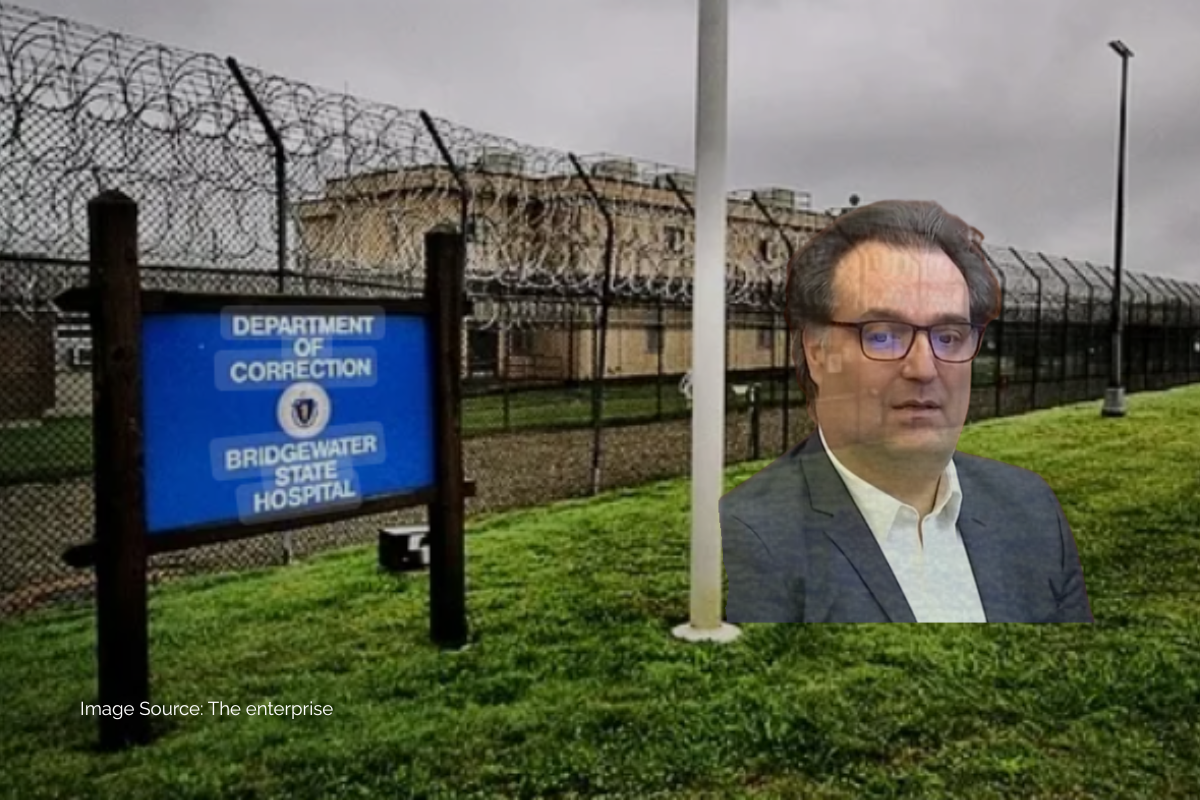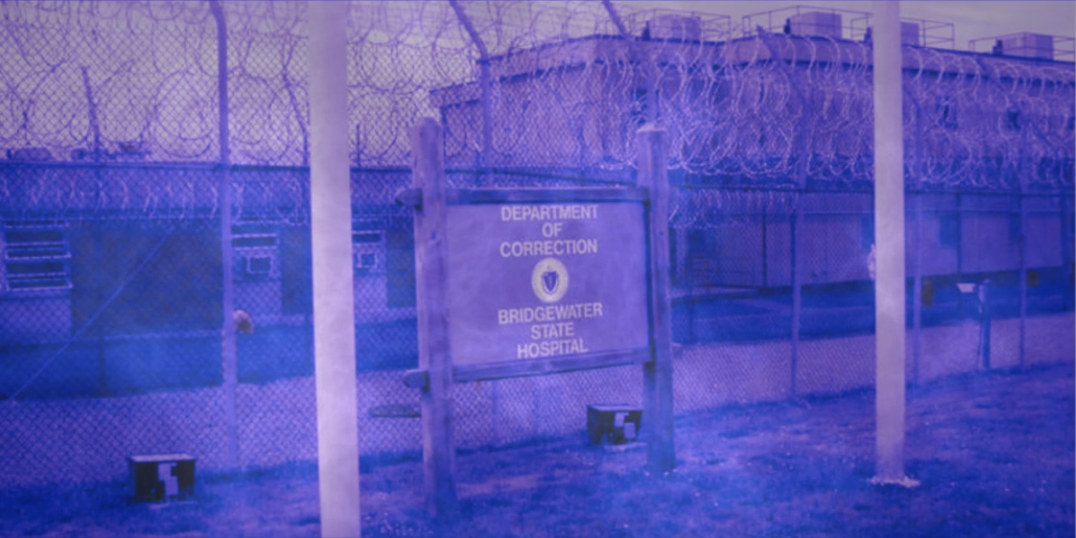Brian Walshe Trial Delayed for Competency Evaluation
What It Means | What Happens Next

Walshe Trial Takes a Mental Health Sabbatical
The long-awaited murder trial of Brian Walshe was supposed to kick off later this month with jury selection, a courtroom full of media, and a spotlight brighter than a true-crime documentary premiere. Instead, Walshe is headed somewhere a bit less glamorous: Bridgewater State Hospital.
At its core, this is the case of a man accused of killing his wife, Ana Walshe, in their Cohasset home in January 2023 — a disappearance investigators say unraveled through a trail of digital evidence and trash bins. Ana’s body has never been found, but prosecutor’s believe they have a mountain of evidence that will convict Brian Walshe.
On October 3, the defense filed a Motion to Continue the scheduled Oct. 20 trial date due to mental health concerns after Walshe suffered a stabbing assault at the jail.
In a last minute October 6 hearing, Judge Diane Freniere ordered a 20-day mental competency evaluation, sending Walshe to the state’s secure forensic hospital after defense attorneys argued his mental and physical health had taken a dive since a recent stabbing at the Norfolk County Jail. The defense claimed his post-attack condition left him unable to effectively assist in preparing his defense.
The prosecution pushed back, arguing that while Walshe might be exhibiting some trauma-related symptoms, they did not rise to the level of legal incompetence. Prosecutors urged the court to keep the October 20 trial date, suggesting that further evaluation could occur without derailing the schedule.
In their view, Walshe still understood the charges and proceedings well enough to stand trial. Judge Freniere disagreed, siding with Dr. Burke’s recommendation for a Section 15(b) inpatient evaluation to clarify the extent of Walshe’s impairments before proceeding.
Freniere: “Do you understand that your attorneys have expressed to me in their pleadings and affidavits, we call them, that they have concern about your ability to participate in your defense in this case?”
Walshe: “Uh, yes,”
Freniere: “And you understand that they have so informed me of their concerns. Based on what I read in those affidavits, as a preliminary step under the rules that govern these things, the court, the rules require me to determine where the court has any doubts to whether you are competent to stand trial. Do you understand that?”
Walshe: “Uh, that makes sense, yes.”
Freniere “Alright, and do you understand that if I find that there is a doubt as to whether or not you’re competent and can assist in your defense, which seems to be the heart of it here, then I can order an exam, and I did this morning,”
Walshe: “I’m sorry, can you repeat that? You said order something?”
Frenier: “I can order an examination of you. That process was something I thought was appropriate, so I asked Dr. (Michael) Burke to come to assess what we call a preliminary assessment of whether or not we should do anything further. That’s what happened this morning. Do you understand that?”
Walshe: “I believe I’m clear on that, yes,”
Freniere: “Alright. Do you have any questions for me?”
Walshe: “Not at this time, thank you,”
Freniere agreed to hit pause on the trial schedule, ordering an evaluation under Massachusetts General Law Chapter 123, Section 15—the statute that governs competency examinations. A competency pause can shift momentum, delay witness scheduling, and affect how juries eventually perceive the defendant’s mental state.
A competency hearing is now set for October 27, where doctors’ reports will be reviewed and the judge will determine whether Walshe is fit to stand trial. If deemed competent, the trial will be rescheduled; if not, this case might be parked on the legal runway for quite some time.
If a defendant is tried while incompetent, it’s a prime appellate issue. Courts typically err on the side of caution — hence the evaluation.
Is This a Delay Tactic? Whenever a high-profile case suddenly pivots to a competency evaluation, the question inevitably bubbles up: Is the defendant truly impaired, or is this a strategic maneuver to buy time?
Read on for my in depth analysis on all the implications…
UPdate
A Quick Catch-Up Before the Detour
Before this twist, both sides were in the final stages of pretrial wrangling. The defense had pushed for a change of venue (motion pending) or at least an outside jury pool, arguing that relentless media coverage and podcasts had contaminated Norfolk County. The prosecution, meanwhile, was sharpening its narrative: they’ve built their case on a mix of digital breadcrumbs (including Google searches on body disposal and decomposition), physical evidence recovered from dumpsters, and allegations of financial and romantic motives.
Jury questionnaires were drafted, suppression motions largely settled, and opening statements were weeks away. Then came October 6—
…a hearing that, mysteriously, hasn’t appeared in full on any of the usual court video feeds. The hearing was private but Judge Freniere allowed release of the audio. WCVB aired the audio clip that offered some revealing quotes between Walshe and the judge, as well as testimony from Dr. Burke.
In addition, the court clerk declined to release the judge’s order (citing medical privacy), so the public doesn’t yet have a redacted copy of the competency-order itself.
The Details
So… What Exactly Is a Competency Evaluation?

Competency to stand trial is one of those legal concepts that sounds straightforward but has layers thicker than Boston chowder.
In Massachusetts, the standard is based on whether a defendant understands the nature of the proceedings and can assist their attorney in their defense. It’s not about guilt or innocence. It’s about whether one can mentally participate in their own trial—or whether they’re too impaired to do so.
Under M.G.L. c.123 §15, if a judge has “reason to doubt” a defendant’s competency at any point after indictment, they can order a psychological evaluation. Usually, this starts with a quick screening, but if more is needed, the court can commit the defendant to a 20-day inpatient evaluation—and for defendants who require secure conditions, that means Bridgewater State Hospital.
Bridgewater is a medium-security forensic psychiatric facility run by the Department of Correction. It’s where examiners observe defendants over time, conduct interviews, review medical and jail records, and administer tests. Think less “white coats and soft lighting” and more “institutional brick, observation windows, and lots of paperwork.”
Clinicians look at whether the defendant understands the charges, can track courtroom roles, knows the consequences of pleas, and can meaningfully communicate with counsel. They also evaluate whether any psychiatric or cognitive issues are interfering with those abilities.
What We Know — And What’s Still Murky
Dr. Burke’s testimony at this hearing was what prompted Judge Freniere’s decision. No medical records or affidavits have been released, and court clerks have declined to share the written order, citing medical privacy laws. What we do know is that the defense pointed to Walshe’s post-stabbing decline as the key factor, arguing he’s unable to assist in his defense. That claim, paired with Dr. Burke’s assessment, described in detail below, and what the judge observed in court on October 6, was apparently enough to trigger the evaluation.
It doesn’t take a formal diagnosis to raise the competency question. Defense counsel’s representations, recent incident reports from the jail, or even Walshe’s own courtroom demeanor can be sufficient for a judge to order the evaluation.
Essentially, it’s the legal version of saying, “Let’s get a second opinion before we try this guy for murder.”

What the Doctor Saw: A Foggy Mind and Lingering Trauma
During the October 6 hearing, Dr. Burke, a forensic psychologist, testified that he spent about 50 minutes interviewing Walshe that morning, after consulting with his attorneys, the jail’s mental health director, and reviewing affidavits from both defense counsel and Walshe’s longtime outpatient psychiatrist, Dr. Titman.
Burke explained that Walshe had no history of serious mental illness, substance abuse, or cognitive disability, though he had previously reported issues with focus in school and carried a self-reported diagnosis of narcissistic personality disorder. He’d been in outpatient therapy for years for episodes of depressed mood.
Everything changed after the September 11 stabbing at Norfolk County Jail. According to Burke, Walshe’s attorneys reported that since the attack, he’d become foggy, unfocused, and forgetful. Where they once held two- to three-hour strategy meetings, Walshe now forgets information he’s previously been told, loses track of conversations, and seems unable to concentrate for long periods. He’s described nightmares, interrupted sleep, low energy, and jumpiness, especially when returned to general population after being temporarily housed in the medical unit.
Burke’s own observations echoed these reports. He found Walshe engaged but intermittently foggy, requiring repeated questions and struggling with back-and-forth conversation. While his factual understanding of the charges and courtroom roles was intact, Burke had “some concerns” about Walshe’s ability to assist in his defense—the crucial second prong of competency.
He couldn’t determine whether Walshe’s cognitive issues stemmed from trauma, memory impairment, stress about the upcoming trial, or something else. For that reason, he recommended a comprehensive inpatient evaluation under Section 15(b) at Bridgewater State Hospital, citing the magnitude of the case, the volume of evidence Walshe must review, and the need to closely observe him over time to parse out the nature of his impairments
Deep Dive: Competency to Stand Trial in Massachusetts
What “competent to stand trial” means:
Massachusetts follows the Dusky standard (capacity to understand proceedings and assist counsel). Under M.G.L. c.123, §15, if the court doubts competency at any stage after indictment/complaint, it may order an exam by qualified clinicians. If needed, the court can then order up to 20 days of inpatient observation—for men requiring strict security, at Bridgewater State Hospital—before holding a competency hearing.
Key pieces of the process (Section 15):
15(a) screening/evaluation: initial clinician exam(s), often quickly arranged.
15(b) commitment (up to 20 days): inpatient observation/testing if the court has reason to believe more data is needed to determine competency (or criminal responsibility).
15(d) hearing: judge weighs reports and testimony to decide competency.
Guidance used by examiners (report structure, data sources, testing options) is laid out in the state’s 15(b) report manual and allied quick references.

What the 20-day Evaluation Can Include
⚫Clinical interviews (repeated) assessing understanding of charges, roles of courtroom actors, plea options, and ability to consult with counsel.
⚫Record review (medical/jail incident reports, prior treatment, medications).
⚫Cognitive & forensic tests as indicated (competency instruments, malingering screens).
⚫Behavioral observation across settings/shift notes, medication response.
⚫Collateral input (defense/prosecution materials, custody staff observations).
These elements are spelled out in Massachusetts evaluation manuals used by DMH/DOC-affiliated forensic clinicians.
Where He’s Going: Bridgewater State Hospital (BSH)
What it is: A medium-security state facility serving men sent by criminal courts for evaluations/treatment under strict security; operated by the Massachusetts Department of Correction.
Why BSH (vs. DMH hospital): §15(b) specifies Bridgewater when a male appears to require strict security during observation.
Context: Advocacy reports have criticized conditions and called for reforms (useful background if you add a sidebar).
What the Oct. 27 Hearing Will Decide
The court will review examiner reports and possibly testimony to rule competent or not competent. If competent, the court resets a trial date and proceeds. If not competent, proceedings pause while clinicians pursue restoration (treatment, stabilization) and report back; the court revisits competency periodically.
Temporary Pause or the Start of a Longer Detour?
For now, the courtroom lights are dimmed while doctors take center stage. The Commonwealth is ready, the defense is waiting, and the public is watching. What happens next may determine whether this trial resumes swiftly — or slips deeper into the fog of forensic uncertainty.
Related Articles
Brian Walshe Trial Day 10 – Jury Instructions
Day 10 marked the transition from evidence to decision-making. With testimony complete, the court finalized jury instructions outside the presence of the jury, addressed minor but important edits, and then instructed jurors on the law governing the single charge they...
Brian Walshe Trial Day 10 | Closing Arguments
As the Brian Walshe trial moved into its final phase, the closing arguments distilled weeks of testimony into two sharply different narratives. The Commonwealth urged jurors to view the evidence as proof of a calculated, premeditated murder followed by deliberate...
Brian Walshe Trial Implodes Mid-Stream: The Defense Walks Off the Stage
The Commonwealth closed its case on December 10 after presenting a dense stack of forensic evidence, digital breadcrumbs, and witness testimony. But the real story unfolded immediately afterward — in the small procedural moments that signaled the trial was about to...
